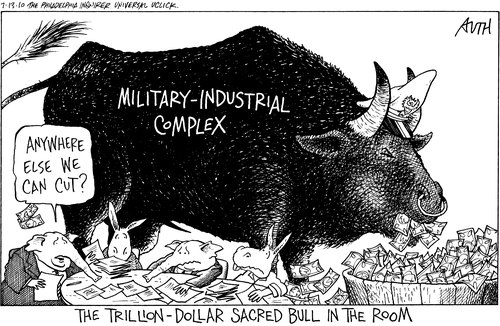Ukraine versus Russia: Shrinking Options—An Analysis
(9 August 2022) by Lawrence Davidson
Lawrence Davidsonldavidson@wcupa.edu
Blog: www.tothepointanalyses.com
On 15 June 2022 I posted an essay entitled “Should the Left Support President Biden in Ukraine? In a detailed analysis I concluded the answer is no. In past circumstances it has been easy for the Left to take a stance against obvious unethical U.S. foreign policy. For instance, the invasion of Iraq and the associated draconian sanctions. The Left’s reaction was just about unanimous in its condemnation. And now we have the case of Ukraine and things are different. Much of the Left either supports President Biden’s policies or at least appears conflicted. The present policies of the Russian Republic seem as criminal as those of the U.S. in Iraq. A loud propaganda war has resulted, greatly confusing perceptions.
Given the current circumstances, I have decided to revisit the Russia-Ukraine struggle, focusing on the many issues appearing in the public debates and ultimately on the shrinking options for both sides. Crying “Peace, peace, where there is no peace” is like running around in circles. It might be that only mutual exhaustion can bring peace.
Point One: Recent Historical Context
For those who want to understand the present crisis in context, some awareness of the post-Soviet period is called for. When, by the end of 1991, the Soviet Union ceased to exist, the Russian Republic that replaced it showed no signs of wanting to reabsorb its old dependents, including Ukraine. Nor did its leadership exhibit delusions of grandeur by setting its sights on recreating the empire of the czars. Americans have been told that Russian leaders now have both ambitions. Is this the cause of the war in the Ukraine? Or is it as professor John Mearsheimer of the University of Chicago, has argued that the Russians were pushed in the direction of war with Ukraine by the expansive policies of their Western neighbors.
Mearsheimer’s argument can be supported by other facts. For instance, there is strong evidence suggesting that the United States and certain of its NATO allies misled the Russians on the question of NATO expansion. Thus, “in the National Security Archive document, “Record of conversation between Mikhail Gorbachev and James Baker in Moscow,” dated 9 February 1990, Baker, then secretary of state, tells his Soviet hosts: “NATO is the mechanism for securing the U.S. presence in Europe.…We understand that not only for the Soviet Union but for other European countries as well it is important to have guarantees that if the United States keeps its presence in Germany within the framework of NATO, not an inch of NATO’s present military jurisdiction will spread in an eastern direction.” When assurances are made at this level of government, meeting minutes take on the role of written promises. Also when the minutes are presented logically and clearly, it is difficult for one side or another to make excuses for subsequent acts of betrayal.
In the case of NATO’s spread into what had been Warsaw Pact territory, what looked like betrayal of promises in the eyes of Russia’s leadership was described by Western leaders to their own people using code words and phrases: “the expansion of NATO to countries once part of the Soviet-led Warsaw Pact felt like an obvious and intrinsic part of a … process of freedom and security spreading over the continent.”
As NATO was pushed eastward, Western leaders ignored numerous warnings by Russian officials. For instance, in 2005, Putin told a newly arriving American ambassador, “You Americans need to listen more …you can’t have everything your way anymore. We can have effective relations, but not just on your terms.” They also ignored warnings from their own diplomatic and intelligence experts. Fiona Hill, then national intelligence officer for Russia and Eurasia for the National Intelligence Council, warned President George W. Bush in 2008 that sponsoring Ukraine and Georgia for NATO membership was dangerous and would provoke the Russians. Bush ignored Hill because “the Bush administration … had little inclination to concede much to a declining power.”
The expansion strategy that ended with NATO’s courting of Ukraine and Western infiltration into that country’s politics left Russian leaders with three choices:Approach the West with the offer of a security treaty that would halt NATO’s eastern expansion and reestablish stable spheres of influence. This the Russians did in December of 2021. The United States and NATO dismissed the offer out of hand.
Allow the territory on Russia’s southwestern border to be taken over by what they believed were hostile powers.
Defend their border by launching a war against Ukraine—a strategy that might have been viewed as necessary from the Russian perspective but was nonetheless illegal under international law.
The topics considered below flow from the fact that Russia chose the third option—the invasion of Ukraine.
Point Two: War Crimes
The invasion of Ukraine has resulted in a series of war crimes by Russian forces against the Ukrainian people. To a lesser degree war crimes may be laid at the feet of Ukrainian forces. Despite historical efforts to outlaw such behavior, this was not unexpected. War enables the brutal and thus war crimes have long accompanied the waging of war—a situation which has been real and present with us since the Athenians wiped out the Melians in 416 BCE. That being the case, the only ethical position to take is that all war crimes, no matter who commits them, must be actively condemned.
Such crimes probably cannot be done away with, but they can be punished. There are now constant calls for punishing Russian soldiers and officials for war crimes. Here again things get depressingly complicated.
The very ubiquity of war crimes makes the present demand for punishment problematic. The United States has been accused of war crimes in Vietnam, Iraq and Afghanistan. It has never been held to account. It would be impossible to avoid the charge of hypocrisy by singling out Russian leaders for crimes similar to those repeatedly committed by American leaders and sometimes the Ukrainians as well. Of course, American propaganda simply ignores the issue of hypocrisy and in so doing reduces war crimes prosecution to a political weapon with no moral efficacy.
Point Three: The Never-Ending Cold War
The Biden administration is still fighting the Cold War. The most evident, and publicly admitted, motive behind supplying offensive as well as defensive arms to Ukraine is to “weaken Russia.” This follows logically from the likely encroachment strategy behind the enlarging of NATO—or, if you prefer, “freedom spreading over a continent,”
If this anachronistic aim of “weakening Russia” is indeed the case, the U.S. administration has no reason to seek a compromise solution to the conflict. Rather it might be motivated to keep the war going despite the possible piece-by-piece destruction of Ukraine as a modern society. This U.S. approach might unknowingly contribute to Russia’s strategic fallback goal. If Russia cannot attain a neutral Ukraine on its southwest border, then it will aim to remove Ukraine as a threat by the country’s near total destruction.
Point Four: The Issue of Agency
It seems self-evident that Ukraine has the right (the agency) to defend itself and self-defense is certainly a morally justifiable position. However, despite the unilateral image presented in the Western media, Ukrainians are divided. There are Russian speaking Ukrainians who see the need to defend themselves against Kiev (Kyiv). However, when the nation as a whole is invaded, the right of a majority to exercise self-defense becomes predominant.
Yet resulting agency often quickly becomes complicated. Ukraine’s ability to defend itself has become tied to allied support. In other words, it is no longer a free agent. This is so because these powerful allies also have agency and their intentions go beyond Ukrainian independence. Indeed, the actions of Ukraine’s principal ally and arms supplier, the United States, has sought to transform Ukraine’s war of defense into a proxy war to destroy as much of Russia Republic as possible. At this point negotiations, and the almost certain concessions these will entail, become obstacles to be put off. The goal now is for this war of defense to drag on. Ipso facto, this also means the continued destruction of Ukrainian society. This predicament is partially hidden by the hard-line, zealous stance of Ukraine’s President Zelensky. However, such a position cannot be maintained forever.
Point Five: Regime Change and Neutrality
It seems likely that if some part of Ukraine is to maintain a sovereign status, that entity will have to accept regime change and neutrality. These are interconnected because it is hard to imagine the present Zelensky government acquiescing to neutrality. Yet this is probably what it will take to end the war and retain some semblance of Ukrainian sovereignty. The Americans should intuitively understand this, for they are experts in engineering regime change. After all, in 2014, Washington helped engineered the overthrow of Viktor Fedorovych Yanukovych a duly elected pro-Russian president of the Ukraine.There are two ways of thinking about regime change and neutrality for Ukraine: (a) Russia wins or (b) at least some of Ukraine is saved from the Russians, the West and itself. Why from the West and itself?
As noted above, it is certain that the United States and its NATO allies actively interfered in Ukrainian affairs in 2014 to ensure leadership favorable to the West. By doing this, the U.S. made immediately real the Russian’s “existential threat” of hostile encroachment. At the same time, by choosing to side with the West and NATO, Ukrainian politicians like Zelensky were actually undermining their nation’s security. Did they understand this? Probably not. Do they understand the necessity of adopting a neutral posture, even at the cost of their own political careers? Probably not.
Point Six: Sanctions
Sanctions are a favored weapon of the United States and also one that often results in enormous collateral damage. The present sanctions were originally placed on select Russian political and economic leadership as punishment for the invasion of Ukraine. However, once the United States changed its objective to “weakening Russia,” sanctions threatened to become a weapon to damage the entire Russian economy. This same end might rationalize the maintenance of sanctions even after hostilities in Ukraine recede. If Washington begins to conceive of sanctions as more or less permanent (think of Iran), they actually become more or less non-negotiable.
It is probable that the Russians no longer seriously adhere to their maximalist aim of annexing all of Ukraine. Thus, there may be room on the Russian side to agree to a smaller, neutral yet sovereign Ukraine. This may be the price of peace for the Ukrainians. However, at this point, such a compromise is a non-starter for those in Washington and Kiev (Kyiv). Add to this an equally stubborn stand on sanctions, and there is little left for Russian diplomacy to work with.
Conclusion
When NATO began, with American encouragement, to expand into what once was the Soviet sphere of influence, they created very limited choices for the leaders of the Russian Republic: (1) allow themselves to be encroached upon by a hostile force or (2) defend their southwestern border through war. One may believe the Western leaders when they claim that they did not mean to lay down such severe choices or that their intentions were misinterpreted by Russia. But to believe this, one would also have to accept that American leadership in the post-Soviet period, from the standpoint of international relations, was incompetent. This might well be the case. It would not be the first, and probably not the last, time national leaders, democratically elected or otherwise, proved to be disastrously inept in this way.
The Russians chose the war option with all the consequences described above. And, in so doing, they also left Ukraine and its Western allies with very limited choices: (1) accept a truncated, neutral and disarmed Ukraine with some semblance of sovereignty or (2) have Ukraine destroyed, through a war of attrition. One might argue these are not the only choices, but if anyone tells you a clear-cut Ukrainian victory is possible, they are fooling both you and themselves.
It is revealing that from the American point of view, number two may well be preferable to number one. Remember, the primary American goal is to “weaken Russia.” Within the context of the present war, the best way to do this is to have a prolonged conflict in which the nation of Ukraine becomes, if you will, little more than collateral damage.
So, what do we have here? Both Russia and the United States are betting on a war of attrition. Russia is betting that this will eventually destroy Ukraine’s will to fight and thereby secure its southwestern border. The U.S. is betting that this will destroy the Russian Republic. Right now, no one, not even Kiev (Kyiv) for which a war of attrition is a disaster, is betting on peace.
—
Lawrence Davidsonldavidson@wcupa.edu
Blog: www.tothepointanalyses.com






